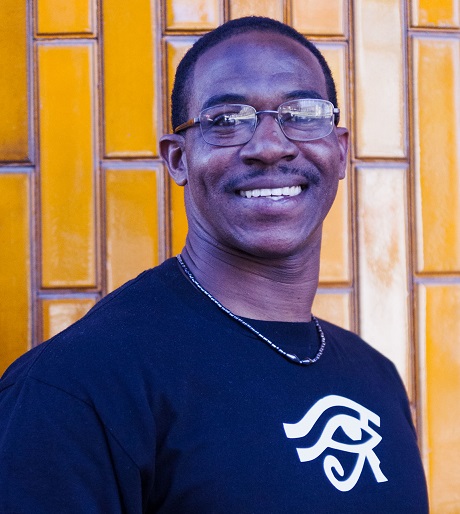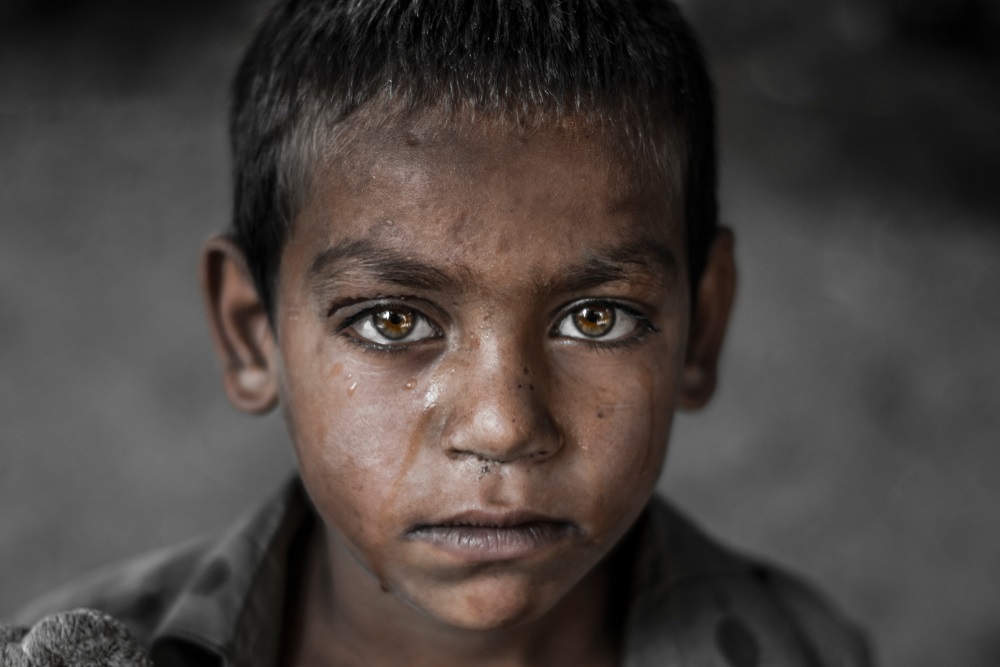![]() I imagined things from the standpoint of invincibility in my youth. Growing up in the ghetto encouraged me to embrace a “survival of the fittest” mentality without ever having read Darwin. As a child I understood the ghetto as an opposing force that kept my mother on her knees in prayer — sweating, struggling and protecting. She sacrificed all her wants, dreams and half her needs to protect my sister and me from ever feeling poor as children.
I imagined things from the standpoint of invincibility in my youth. Growing up in the ghetto encouraged me to embrace a “survival of the fittest” mentality without ever having read Darwin. As a child I understood the ghetto as an opposing force that kept my mother on her knees in prayer — sweating, struggling and protecting. She sacrificed all her wants, dreams and half her needs to protect my sister and me from ever feeling poor as children.

Anthony Robinson
With no father around, I was the man of the house. I took that responsibility seriously somewhere in my spirit; although I did not always show it. I wanted to protect my mother from poverty and lift her burdens like a superhero lifting a truck over his head in triumph to free the beautiful Black queen stuck under it.
The problem was that other than in my imagination, I had no weapons or resources to use to combat this villain. In my imagination I could be bigger than life, bigger than any weapon formed against me, bigger even than the ghetto. So in my youth, watching all the poverty around me, I’d imagine things from the standpoint of invincibility.
My prison sentence began with a bang more wrenching to the soul than a judge’s gavel. This bang came in the form of a state-issued weapon. The weapon that took the breath of the one who gave me breath.
Dear Mama (Dalphine Renee Carter),
I am staring down the barrel of history unflinchingly — and I’m demanding 40 acres and the truth! My views of the justice system were shaped by the point of experience I received from the “just-us” system. “There is no justice. It’s just us.” We have to reach for each other under the earth and hold on.
I’ve been a “ward of the state” since age 9 because they took us from your custody, then killed you and took your customs from us. My heart is still breaking.
For more information on dual status youth, go to
► JJIE Resource Hub | Dual Status Youth
But the realization that I’ve come to is: In all actuality, the system raised me. How could it not have? I’ve been in and out of Mary Graham Children’s Shelter and foster care placements. At 10 years old, I had to schedule court appointments and parental visits to see my father, who was always shackled and chained during these visits.
It took years to realize that it was just as important for him to get out of his cell and take a trip as it was to visit an abandoned son. I came to the realization that, in all the court visits I had with my father, he never offered me anything I could move forward with in my role as a man.
Dear Impact Justice,
When my mother, Dalphine Renee Carter, was murdered by the police when I was 9 years old, it placed me in “survival mode” — a short-term, fear-based mode of thinking you enter into when your fight-or-flight response is triggered. It’s the mentality that leads you to attack or retreat during stressful times rather than communicate and embrace.
And how could I not go into survival mode when I knew, even at that young age, I had lost my only source of unconditional love in this world? I was lost and alone at the same time, and I felt/feel every bit of the missing piece of my soul that held my mother’s aspirations for this world.
Dear Judge,
What is a sentence of life to one whose life was a sentence?
Dear Officer,
Do you know what it's like to have the umbilical cord severed while you’re still dependent upon her for nutrients, discipline, prayers and lessons? When you raised your gun, did you know you were aiming at my hope, my life’s chances, my heart? You introduced an insatiable darkness, and now, how could life matter enough? Because hers didn’t matter enough …
Anthony Robinson served 20 years in prison for robbery and carjacking; earned an associate's degree in social and behavioral sciences from Coastline Community College, and now serves as the executive director of the Echo Chamber, a community-based organization that builds capacity among the most marginalized populations in the areas of reentry, homelessness and justice reform. He is returning to California Justice Leaders as a senior member.
California Justice Leaders is a first-of-its-kind AmeriCorps program designed to engage young adults who have successfully transitioned back into their communities after having had contact with the justice system. Members wrote personal blog posts to reflect on their experiences with the justice system and law enforcement after witnessing the global uprisings from George Floyd and Breonna Taylor’s killings last summer, and the rise and visibility of white supremacy extremists.
